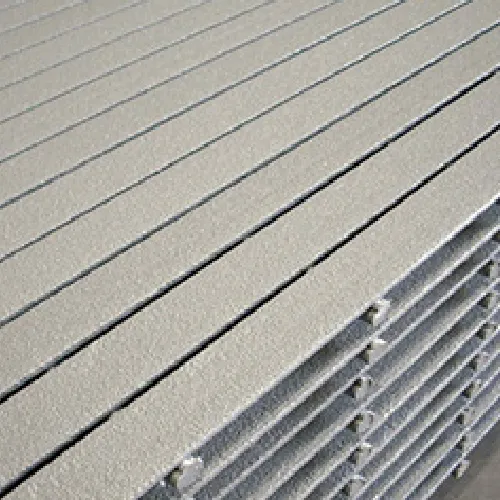loading...
- No. 9, Xingyuan South Street, Dongwaihuan Road, Zaoqiang County, Hengshui, Hebei, China
- admin@zjcomposites.com
- +86 15097380338
- Welcome to visit our website!
Efficient Filtration Solutions Using FRP Tank Technology for Water Purification
Understanding FRP Filter Tanks A Comprehensive Overview
FRP (Fiberglass Reinforced Plastic) filter tanks are becoming increasingly popular in various industries due to their strength, durability, and resistance to corrosive environments. These tanks are primarily used for water and wastewater treatment, filtration, and other applications requiring reliable containment solutions.
What is FRP?
Fiberglass Reinforced Plastic is a composite material made of a polymer matrix reinforced with fiberglass. This combination results in a lightweight yet robust material that can withstand harsh environments, making it ideal for applications in the chemical processing, food and beverage, and water treatment industries. FRP is known for its high strength-to-weight ratio, resistance to corrosion, and low maintenance requirements.
Key Features of FRP Filter Tanks
1. Corrosion Resistance One of the primary advantages of FRP filter tanks is their resistance to corrosion. Unlike traditional materials like steel or concrete, FRP does not rust, decay, or degrade when exposed to various chemicals and environmental conditions. This longevity reduces the need for frequent replacements, promoting sustainability and cost-effectiveness.
2. Lightweight The lightweight nature of FRP allows for easier handling and installation compared to heavier materials. This reduces transportation costs and simplifies the installation process, making it a preferred choice for many applications.
3. Customizable Designs FRP filter tanks can be tailored to meet specific customer requirements. They can be manufactured in various sizes, shapes, and designs, providing flexibility for different filtration systems and processing needs.
4. Thermal Insulation FRP has excellent thermal insulation properties, which can be beneficial in processes requiring temperature control. This characteristic can help minimize energy costs and ensure optimal operations within the tank.
frp filter tank

5. Low Maintenance The smooth surface of FRP tanks prevents the buildup of deposits and minimizes maintenance requirements. Additionally, the material is non-toxic and safe for use in drinking water applications.
Applications of FRP Filter Tanks
FRP filter tanks are extensively used in several applications
- Water Treatment These tanks are widely employed in water purification processes to filter out contaminants and sediments, ensuring clean and safe water supply.
- Wastewater Treatment In wastewater treatment facilities, FRP filter tanks play a crucial role in managing and treating effluents before they are released into the environment.
- Chemical Processing The resistance to corrosive substances makes these tanks ideal for storing and processing various chemicals, including acids and alkalis.
- Aquaculture In fish farming, FRP filter tanks can help maintain water quality by filtering pollutants and ensuring a safe environment for aquatic life.
Conclusion
The growing adoption of FRP filter tanks can be attributed to their unique properties and advantages over traditional materials. As industries continue to seek efficient, durable, and sustainable solutions for filtration and containment, FRP filter tanks will likely play an increasingly prominent role. Their ability to withstand harsh conditions while providing reliable performance makes them an excellent choice for a wide range of applications. Understanding the benefits and applications of FRP filter tanks is essential for industries looking to enhance their filtration systems and improve overall operational efficiency.
-
Transform Your Spaces with FRP Grating SolutionsNewsNov.04,2024
-
The Versatility and Strength of FRP RodsNewsNov.04,2024
-
The Excellence of Fiberglass Water TanksNewsNov.04,2024
-
The Benefits of FRP Grating for Your ProjectsNewsNov.04,2024
-
Elevate Your Efficiency with FRP Pressure VesselsNewsNov.04,2024
-
Welcome to the World of FRP Pressure VesselsNewsOct.12,2024
-
Unveiling the Future of Filtration: Why FRP Filter Vessels are a Game ChangerNewsOct.12,2024
